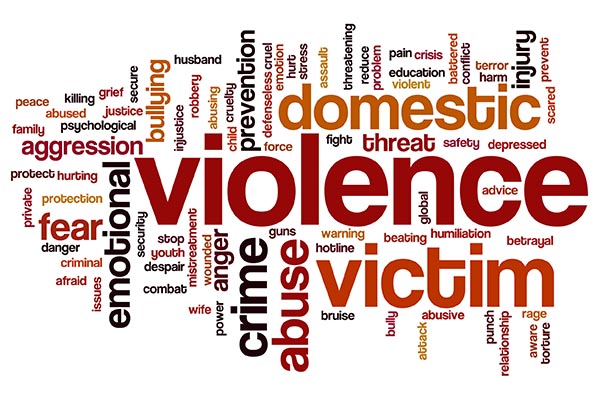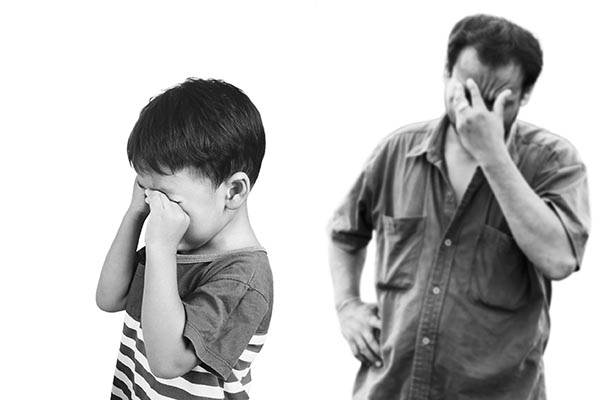
Bringing Home the Misery
Displacement, Withdrawal,
Anxiety & Helplessness
When displaying anger at work against the source of frustration and humiliation, the bully at work, is blocked, its expression comes home. Telling a boss to go to hell brings certain retaliation.
Postponing the anger and shifting the target is displacement.
Displacement could occur on the way home. Pity other drivers on the commute home or wait staff at restaurants at lunchtime who might be in harm’s way. However, some workers exposed to abusive supervision will commit violence — emotional, verbal, physical or in some combination — at home.
More common is emotional withdrawal. Returning home exhausted often skip dinner and go directly to bed seeking protection from sleep. Sadly, distress renders quality sleep almost impossible. Bullying disengages the targeted adult from partners and children. Everyone’s schedules change to accommodate the wounded worker. Over time this becomes resented.
Targets bring home anxiety. The anxiety is seen and felt by all family members. Arguments erupt, emotions flail out of control. Malice isn’t to blame. It’s the anxiety generating fear the target cannot control.
The target’s coupling of anxiety and helplessness sets the tone for a pervasive negative mood in the household. With prolonged exposure, the family members feel vicariously bullied themselves, mirroring the psychological experience of the targeted adult — a downward emotional spiral into the depths of depression or worse.

Spouses
and
Partners
The misery heaped upon spouses and partners is the worst. Because of personal shame, targets wait (unsuccessfully) for their situations to resolve themselves, and delay sharing details with their loved ones. Therefore, they are kept in the dark about the underlying reason for such unhappiness. Female partners are especially vulnerable to domestic violence — physical and emotional. Male partners at home could be subjected to emotional abuse (and some physical abuse). In any form, the violence teaches the children inappropriate ways to cope with stress.
Separations and divorces are common. From a WBI survey, we learned that women partners of bullied workers stayed longer in relationships than men did.
Couples should get counseling from a therapist who understands trauma. See our advice in Target Tutorial — Selecting A Therapist.
Of course, severe distress can force couples closer together. Success or failure under duress depends on the pre-bullying strength of the relationship. Economic insecurity is a major stressor.
Spouses and partners feel a natural helplessness from not being able to stop the bullying for their mate. They cannot intervene at work. They suffer nearly equivalent levels of distress as the bullied partner. Loving reasonable people can tire of rejected suggestions, an inability to make a difference, and failed attempts to protect the children. The stressed brain of the target disrupts the ability to sustain positive social relationships, neuroscience studies show. In other words, the distress itself might be responsible for pushing partners away and taking them to safety away from the injured target.

Children
Young children aren’t expected to understand the reason for the bullied parent’s behavioral and emotional changes. The greatest danger, short of the risk of violence, is the withholding of warm nurturant love for the child. If the child is traumatized in early life (0 to 3 years), research shows impairment of emotional maturity and appropriate conduct throughout life. Workplace bullying can indirectly impair a child’s development, if parents do not take deliberate steps to protect the child from trauma spun off the abused parent’s traumatic experiences at work.
Young children will adopt the emotional climate in the home. If it is unbounded optimism, acceptance and love, they will become healthy adults. If, instead, anxiety is overwhelming, they will develop an unhealthy level of neuroticism (emotional reactivity, hypersensitivity). An anxious household precludes resilience which can make them less prone to being bullied in school, in the workplace and in relationships.
Adult children, of course, will be affected like the non-targeted parent, if still living at home. Adult children in college or in the workforce will be capable of providing support to the bullied parent. The only possibility of harm from child to parent happens in the case of disbelief. As with coworkers or anyone listening to the bullied target’s story, an adult child not believing the parent is debilitating to the parent.

The Scourge of
Co-Dependency
A family with a parent bullied at work is akin to a dysfunctional family with a member suffering alcoholism or substance addiction or emotional trauma from a source other than the workplace. Everyone avoids engagement with the afflicted person. They learn to walk on “eggshells” lest they trigger emotional episodes. They subordinate their own needs to those of the “special person” in the family. They learn to communicate in code. They speak “around” the person they fear directly confronting. They learn to be so good at indirect communication, they never learn, in the case of young children, or forget, in the case of adults, how to be clear and direct about what they personally want and need. Truthfulness is sacrificed for the sake of survival. Timidity replaces courage. Fear dominates. It becomes a way of life. It’s no way for children to grow up healthy and emotionally confident and strong.
As adults, a co-dependent “worldview” accepts abuse as normal routine. Co-dependent people never challenge institutions that threaten their identity. They do not become the change agents. Instead, they are the silent compliant ones who enable the abusive conduct of others.
Co-dependents become the do-nothing witnesses to injustice in our world that stand idly by, preferring to lurk in the shadows they think will protect them from being future targets.

